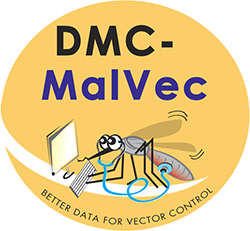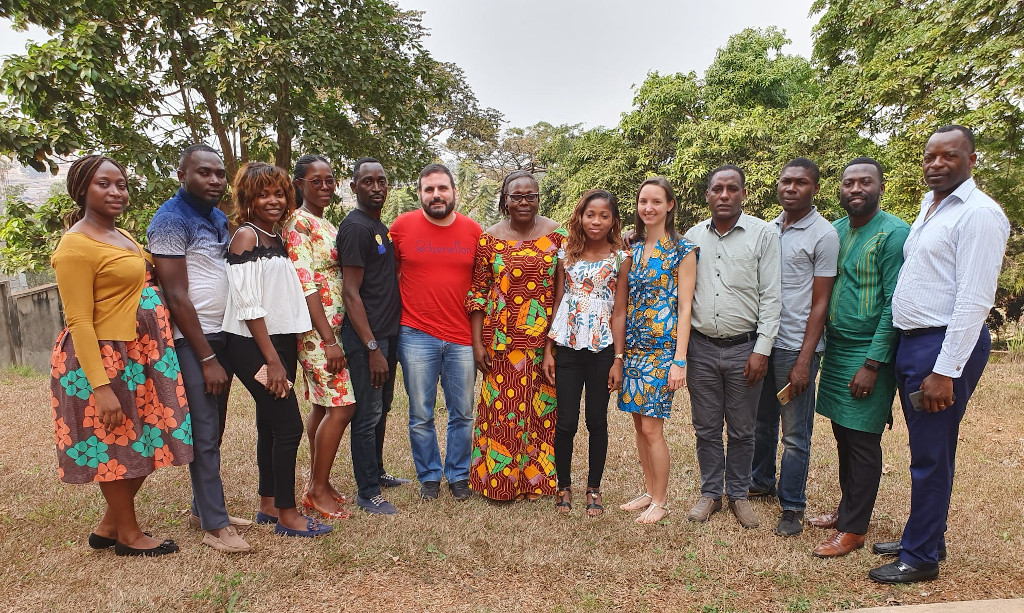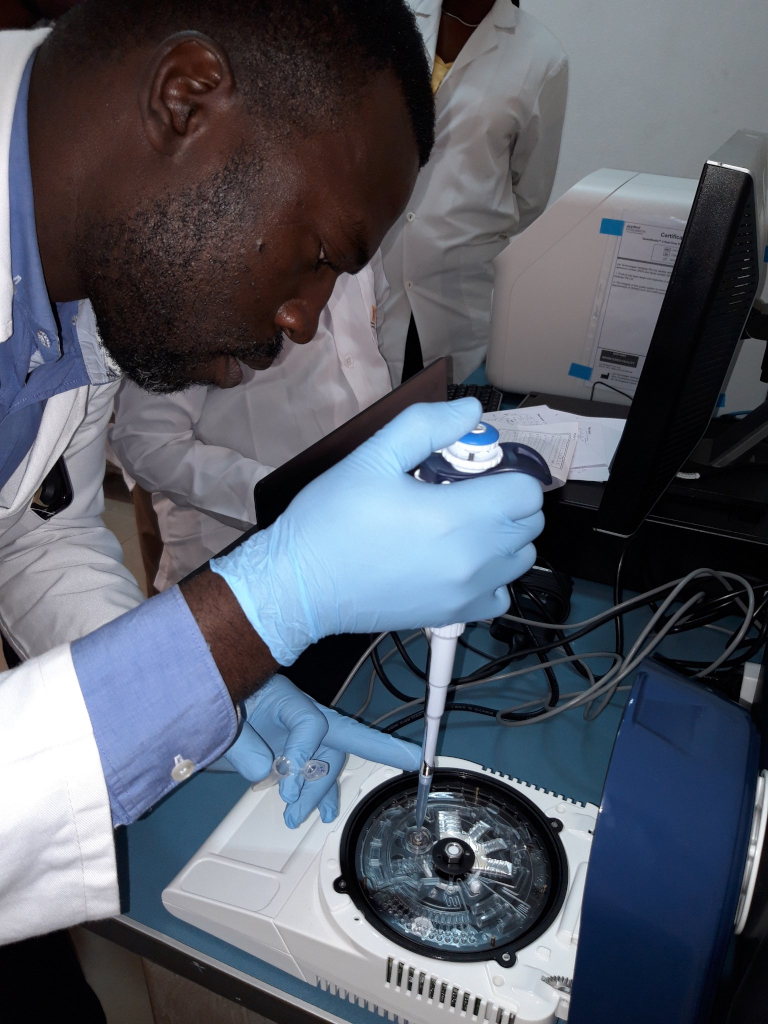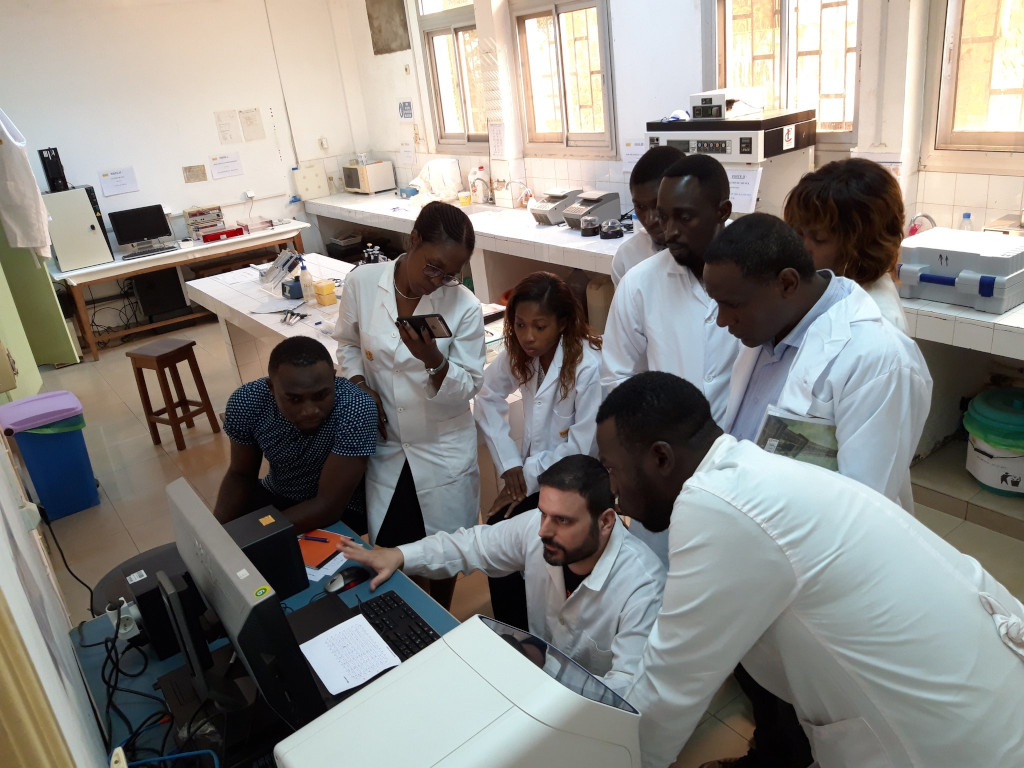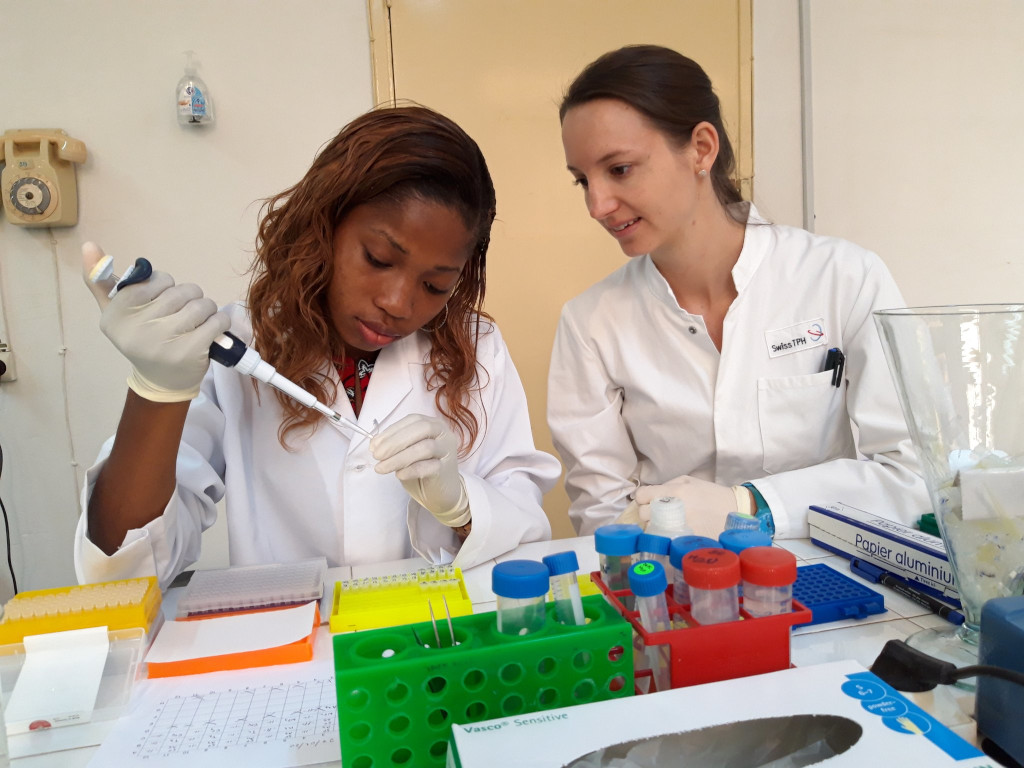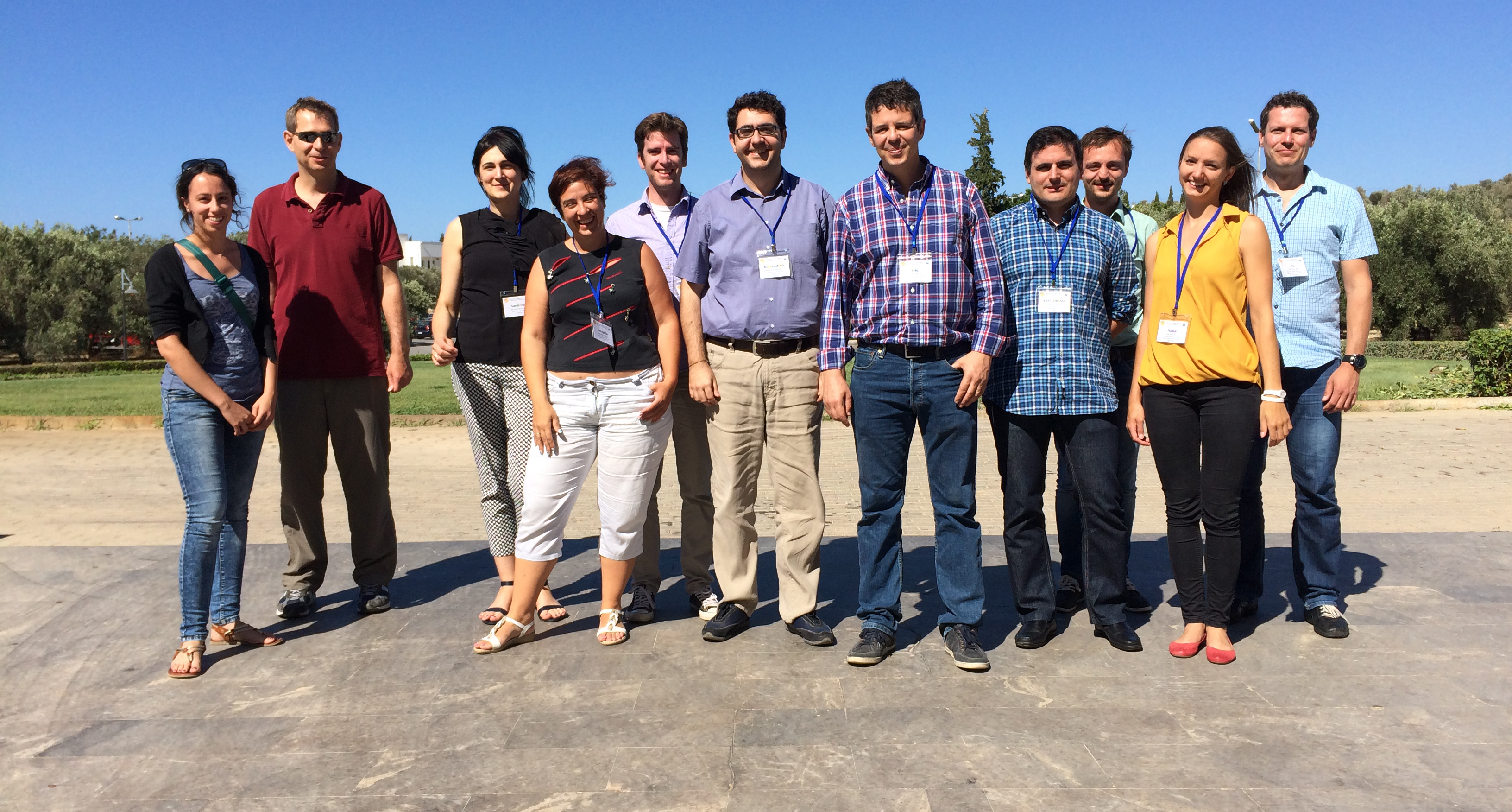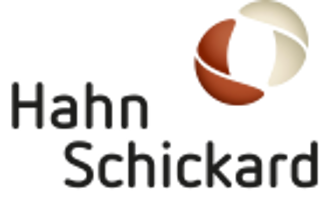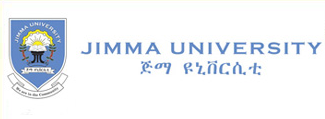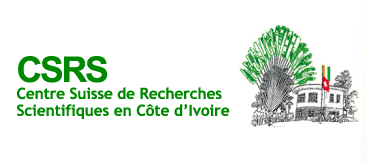The Fourth Annual Newsletter of the DMC-MALVEC here can be downloaded here in English and here in French
In a 10-day lab workshop our African partners learned how to test mosquito field samples for species ID, Plasmodium infection & #nsecticideResistance markers using ready-to-go lyopellets and the AnophelesVector LabDisk.
The specific objectives of the practical laboratory workshop were:
Objective 1. Training on the use of ready-to-go lyopellets for molecular diagnosis of mosquito samples on the QuantStudio5 qPCR machine
Objective 2. Training on the use of the automated diagnostic platform “Anopheles gambiae s.l. LabDisk” on the QIAGEN LabDisk player
Objective 3. Training on the analysis and reporting of RT-qPCR results generated with the DMC-MALVEC RT-qPCR assays
Communication of project activities and results to the local population of three communities of Yaoundé was also performed on Saturday 25 January 2020.
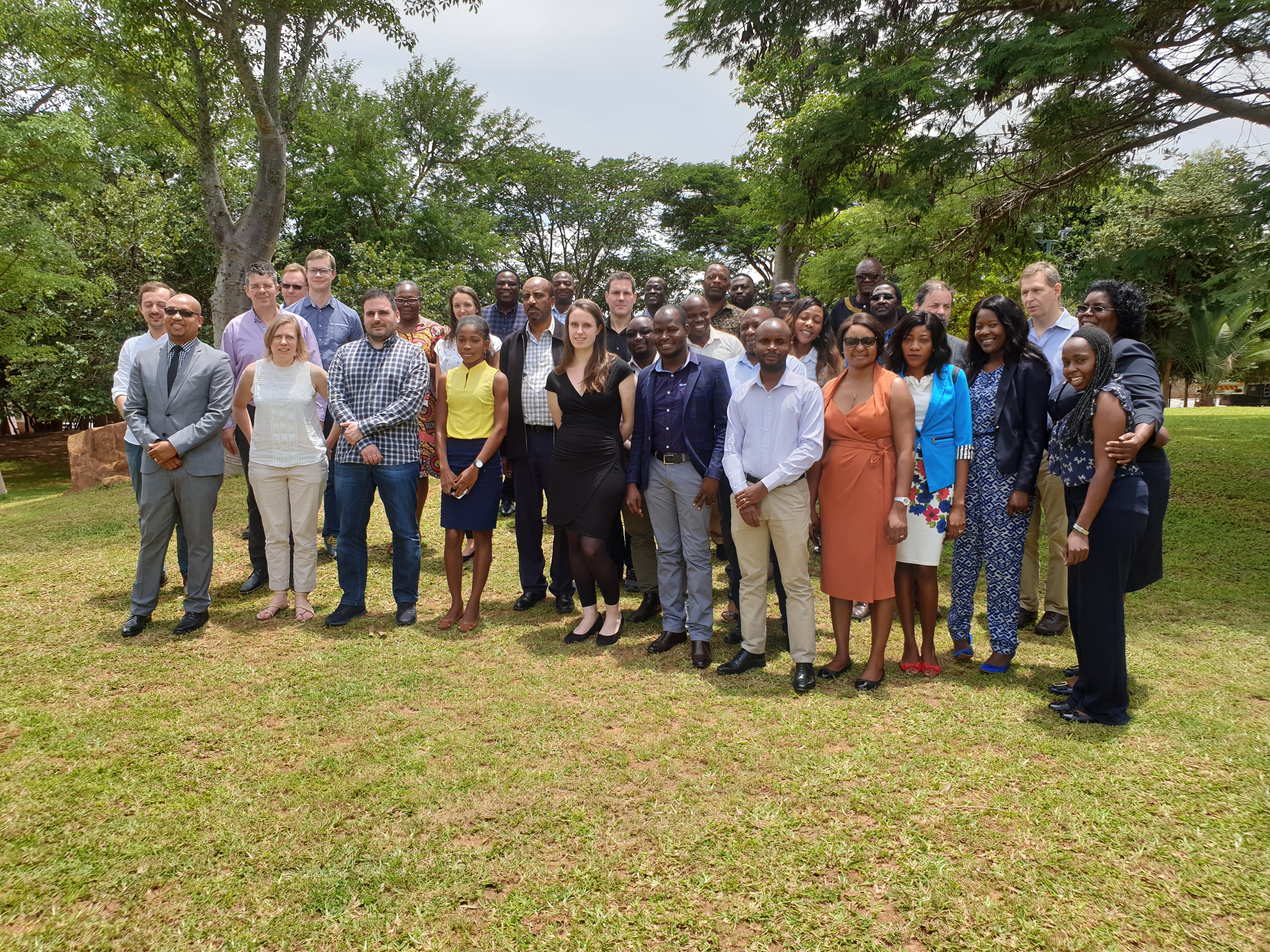
The third annual meeting of DMC-MALVEC took place in Lusaka, Zambia (January 21- 24, 2019) and was coupled with a local stakeholders meting and two workshops. During the annual DMC-MALVEC meeting partners from 9 different countries in Europe (Germany, UK, Switzerland, Luxembourg, Greece) and Africa (Cameroon, Ethiopia, Côte d’Ivoire, Zambia) had the opportunity to meet and review the project’s activities and technical progress.
The second day of the meeting included key-lectures from DMC-MALVEC participants (John Vontas, FORTH, coordinator, on the value of molecular diagnostics for vector control; Mike Coleman, LSTM, WP4 leader, on the Integration of data in disease control). Zambian stakeholders from the National Malaria Elimination Program (NMEP), the Tropical Diseases Research Centre (TDRC), the Malaria Control and Elimination Partnership in Africa (MACEPA), and the President's Malaria Initiative (PMI) presented their work and discussed possible strategies of incorporating DMC-MALVEC’s tools to their programs.
To promote this direction, workshops with hands-on experience for the GAME and the MALVEC LabDisk assays took place during the second and third days of the meeting, respectively.
The Third Annual Newsletter of the DMC-MALVEC here can be downloaded here in English and here in French
Meet the DMC-MALVEC participants and get to know our project at major scientific conferences worldwide:
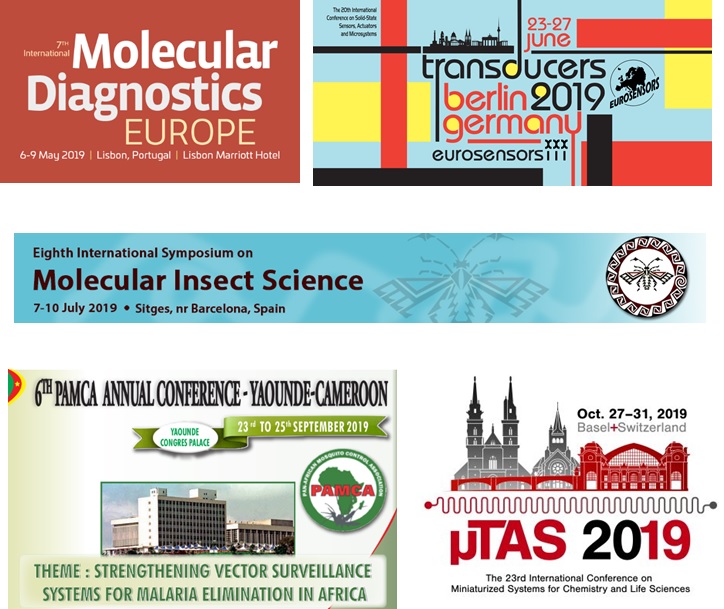
The Second Annual Newsletter of DMC MALVEC can be downloaded here in English and in French
The First Annual Newsletter of DMC MALVEC can be downloaded here in English and in French
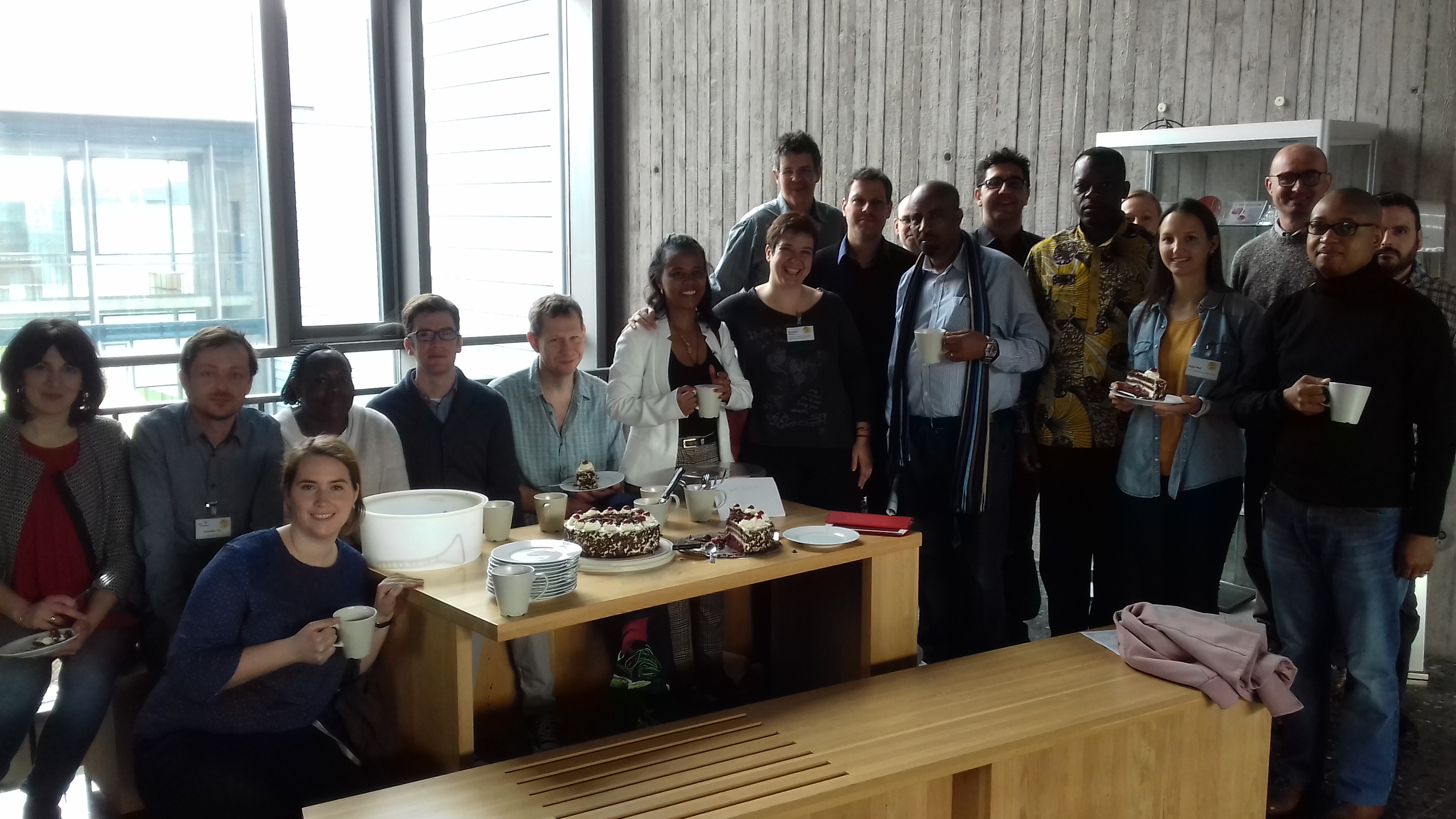
DMC-MALVEC Consortium Meeting: Freiburg, Mar 20-21 2017
Our next consortium meeting will take place in Freiburg, Germany on March 20-21, 2017.The main objectives:
1. Review 1st year activities
2. Prepare 18M major project review for EU, according to grant agreement; make sure deliverables and milestones covered/on track, carefully justify possible outstanding issues, and allocate reporting tasks
3. Discuss possible changes in the plan, including budget updates (if applicable), to be submitted together with 18M report.
4. Clarify possible managerial issues (logistics etc).
4. Review and define action plan for Y2
LabDisk meeting: Heraklion, Jul 18-19 2016
During the LabDisk Meeting that took place in Heraklion, Crete (Jul 18-19, 2016) the following main points were agreed by all participants:
- Two separate disks will be developed: one for A. gambiae assays, one for A. funestus assays. Simultaneous DNA and RNA extraction will be made on-disk.
- A total of 12 qPCR reaction chambers will be used. Detection of 3 colors in each reaction chamber. Adding a fourth color/probe is also possible.
- Assays will be firstly developed in individual mosquito strains (optimization from the analytical point of view) and then in mosquito pools (optimization from the diagnostic point of view).
- DDMS: Output from LabDisk should be able to be exported as raw data (Ct and/or endpoint fluorescence values) in csv format, data should be then inputted in a stand-alone simple excel file. After transformations and calculations data will be entered to the DDMS.
Kick Off meeting: Liverpool, Feb 23-24 2016
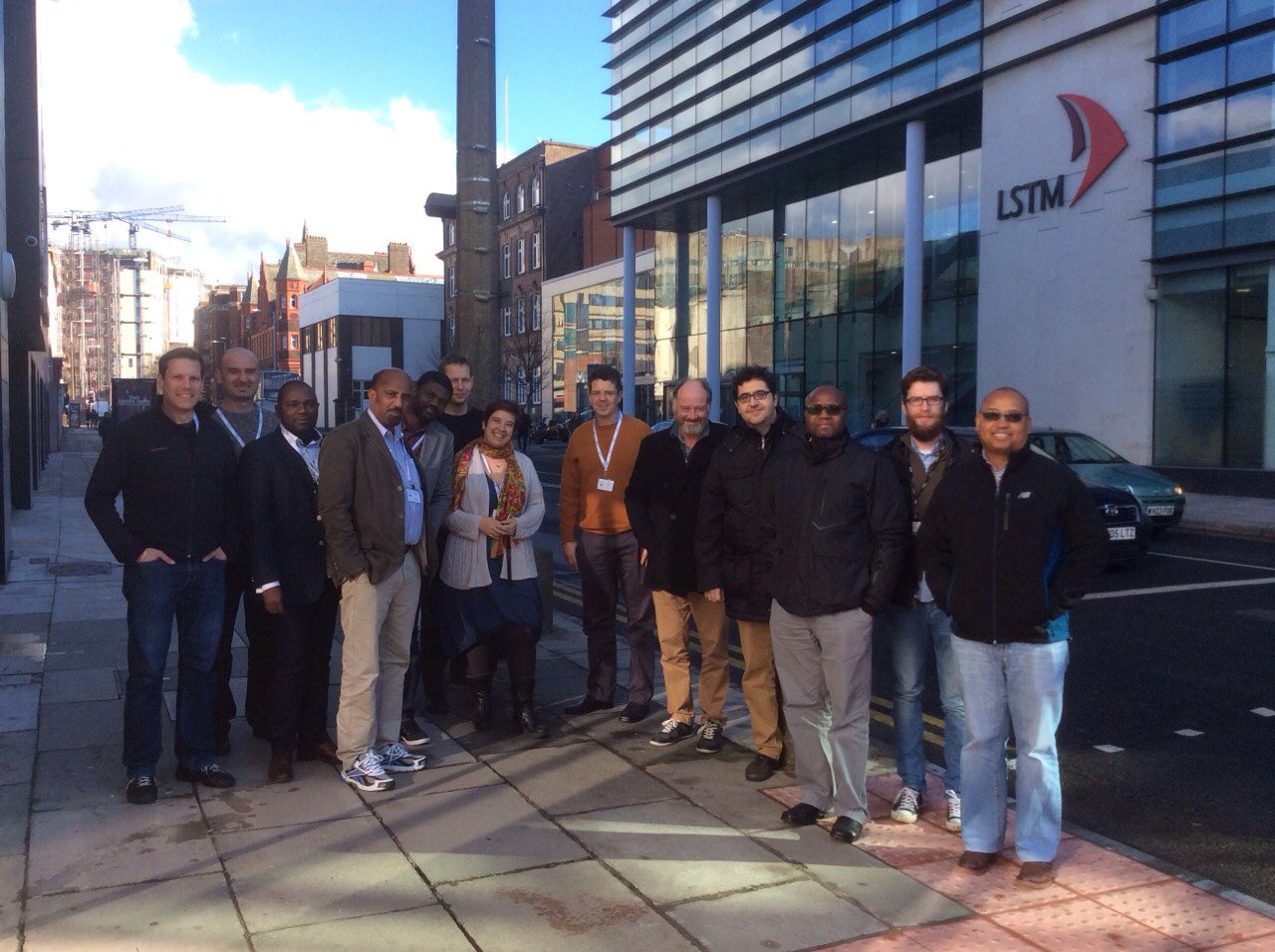
The Diagnosis Management Communication – Malaria Vector Control (DMC-MALVEC) kick off meeting took place in Liverpool, UK, from the 23rd to the 24th of February 2016.
The DMC-MALVEC project aims to develop new technologies for the diagnostics of insecticide resistance, management and communication. These have been real challenges facing many vector borne disease control programs across Africa.
This was the initial meeting of the DMC-MALVEC project that brings together partners in Africa and Europe to develop and improve the three areas of insecticide resistance diagnosis; management and interpretation of the data and communication to better inform policy.
The main aim of the two-day workshop was to plan how this project will move forward and develop the structure in which all partners will work. These activities are crucial to the success of the project.
